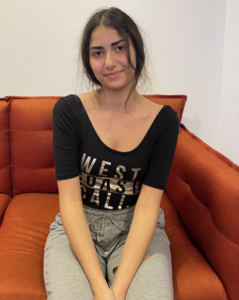![]()
Lebanon Report 2023, #4: Tuesday, May 2
International Community Should Help Lebanon’s Christians
The ongoing political and economic issues that Lebanon faces make it even more necessary to continue efforts to support Christian communities in the country.
The facts are simple. There are currently estimated to be 1.5 million refugees living in Lebanon. 1.2 million of these have come from Syria. With an estimated population of 6 million Lebanese, this means that roughly one in every five of the 7.5 million people now in Lebanon are refugees.
Inevitably, this influx over the past decade has greatly affected Lebanon’s economic and political stability, which was already in a delicate, fragile balance between competing Sunni, Shia, Christian and Druze factions.
Yet while international aid organizations such as the Red Cross and the United Nations High Commissioner for Refugees (UNHCR) focus on the refugee populations — with $60 million going to refugees in Lebanon from the European Union so far in 2023 — the native Christian community in Lebanon continues to be left to fend for itself.
The work of our “Friends of Lebanon” over the past 2.5 years has been to support this native Christian community, the Christians of Lebanon. And this work continues, and must continue. But even this is not enough, at this late hour, to ensure the survival of Lebanon’s Christians. The situation calls for governments in Europe, the United States, and other Lebanese diaspora countries to take action. Most of all, it calls for an international initiative to be set up, perhaps under the auspices of the Vatican, to fund and safeguard Lebanon’s future.
If you would like to support our work to “fill the gap” and get much-needed aid directly to the Christian community in Lebanon, please click here and support our “Friends of Lebanon” initiative. — Christopher Hart-Moynihan
P.S. Below, I share with readers the stories of three more students who received Friends of Lebanon scholarship funding in 2022. As you read, please remember that your support can keep these young people on the right path despite the unimaginable challenges they face. We have helped a total of 132 students with scholarships since August 2020. (link)
News: Seeking to Form a Government
In Bkerké, a “Frank and Clear” Meeting with Patriarch Rai
“These corrupt people persist in obstructing the work of the political, constitutional and administrative institutions, and destroy the hopes of the Lebanese youth to remain in their homeland and build their future in it.” — Syriac Catholic Patriarch Ignace Joseph III Younan, speaking on corrupt government officials in Lebanon, during his Easter message from his seat at the Syriac Catholic Patriarchate in Beirut
“With the glimmer of hope looming on the horizon heralding the openness of Syria regionally and internationally, we ask God to protect it from terrorism and evils, and to bring together citizens with sincere reconciliation so that together they can achieve reconstruction, peace and stability… Let’s throw off the weight of our human worries … renew our complete trust in Jesus … and become faithful witnesses to His Resurrection.” — Patriarch Younan, who is a native of Hassake, Syria, speaking on the end of the civil war in Syria during his Easter message. There are estimated to be 1.2 million Syrian refugees living in Lebanon
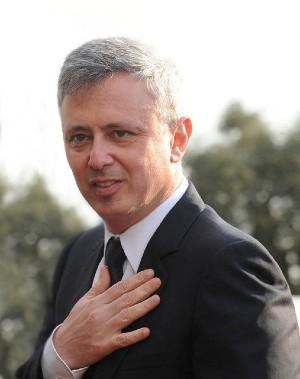
Suleiman Frangieh By Saroufim1 – Own work, CC BY-SA 3.0, (link)
A surprise meeting took place this past month in Bkerké, Lebanon, the residence of Maronite Patriarch Bechara Boutros al-Rahi (“Al-Rahi” is often spelled simply as “Rai” in English).
The meeting was between Patriarch Rai and Suleiman Frangieh (sometimes spelled as “Sleiman Frangieh”), 57, the leader of the Marada Movement political party and a politician whom many are speculating may be the next president of Lebanon.
Hezbollah has supported Frangieh’s candidacy, and he has also received support from the government of France while being opposed by rival factions within the Maronite community. Patriarch Rai, on the other hand, has supported the presidential candidacy of Joseph Aoun, the chief General of the Lebanese Army.
Rai has grown increasingly vocal in his criticism of Hezbollah over the past several years. He called for Hezbollah to cease launching rockets from its territory in southern Lebanon into Israel in 2021 and more broadly has advanced a “Lebanon Neutrality” initiative, seeking to establish a truly “non-aligned” status for Lebanon amid its more powerful neighbors in the region. Part of this initiative would almost certainly include the disarmament and demilitarization of Hezbollah, which currently controls much of the territory of southern Lebanon and maintains its own powerful militia forces independently of the Lebanese Army.
Frangieh said that his meeting with the Patriarch was “extremely frank and clear.” In a series of comments made following his meeting with Patriarch Rai, Frangieh addressed several of the urgent questions facing Lebanon.
On the topic of pursuing some form of lasting reconciliation between the various factions in Lebanon, Frangieh stated that it was necessary for Lebanon to “join the settlement train in the region and not [be] outside it, unlike what happened in 1989-1990 when some [politicians] remained outside the settlement and the Christians paid the price.”
Here Frangieh is referring to the Taif Agreement, which ended Lebanon’s civil war in 1989 but which ultimately did not result in the complete disarmament and demilitarization of all of the militias active in the country. One of the individuals who did not recognize the agreement was Michel Aoun, who headed a military government as the commander of the Lebanese Army from 1988-1990. A Maronite Christian, Aoun did not accept the political concessions that had been made to Lebanon’s Muslim communities in the agreement. However, he was removed from office by a Syrian military intervention in 1990 and only was able to return to Lebanon after the 2005 Cedar Revolution. In the intervening 15 years, during which Syria was the dominant political force in Lebanon, Hezbollah was permitted not to disarm, becoming the primary military force in southern Lebanon.
On the topic of securing the funds necessary to alleviate Lebanon’s economic collapse, Frangieh stated: “I was asked about supporting reforms and the relationship with the International Monetary Fund — and they are in contact with Saudi Arabia — and I confirmed that it is obvious that we proceed with reforms, support the agreement with the IMF and any government that has a reform program.” Frangieh likely mentioned Saudi Arabia specifically because the country was one of Lebanon’s major economic and trading partners until recent years, and it is seen as one of the most likely candidates to eventually provide the massive funding for Lebanon’s economic reconstruction.
On the relationship between Lebanon and Saudi Arabia, which reached a historic low in 2021 after comments from Lebanon’s Information Minister, George Kordahi, criticizing Saudi Arabia’s war against Houthi rebels in Yemen: “I heard the veto on my name from the Lebanese media, but I never heard it from Saudi Arabia or its friends and allies… I am ready for dialogue with everyone, and we must join the settlement train in the region. I call on all politicians to understand how things are moving. We only want the best for the Arabs and Saudi Arabia… I was born in a pan-Arab home, and I did not have any hostile view of any country that is friendly with Lebanon, especially Saudi Arabia. We want the best for the Arabs and we do not accept that anyone attacks the Arab countries.”
On Lebanon’s status vis-à-vis the other countries in the region: “We are in favor of discussing a defense strategy that is in the interests of Lebanon and removes everyone’s concerns.”
And finally, on the possibility of the refugees from the Syrian civil war leaving Lebanon and returning to Syria: “The obstruction of the return of the Syrian refugees was never Syrian, but European and Western… [Syrian] President Assad was never against their return.”
More information on Frangieh’s visit with the Patriarch can be found here.
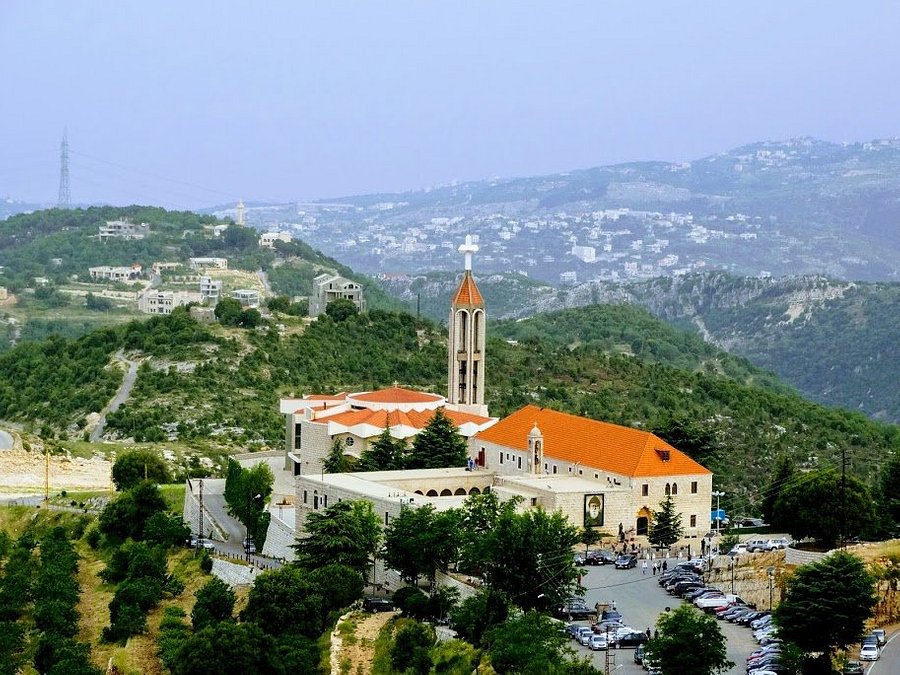
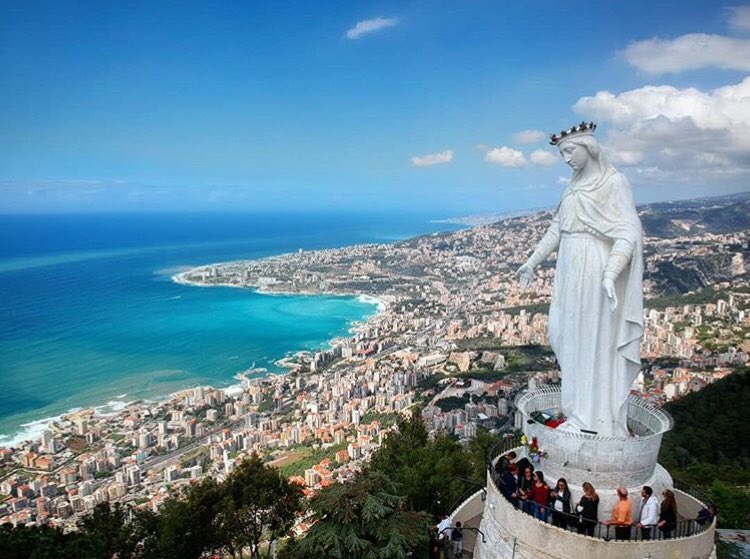
Join us on our 2023 Inside the Vatican Pilgrimage to Lebanon!
Lebanon is a small, beautiful country of seacoasts, hills, mountains and rivers, and majestic cedar trees that has a history stretching back thousands of years, to the Phoenicians and the invention of writing itself in Byblos.
Tucked in between Syria and Israel, the country is a crossroads between Asia and Europe, between the Christian, Muslim and Jewish worlds. Christians have been here since the very beginning, and the Maronite Catholics are a treasure in the global Catholic community.
Many have reflected on the unique situation and mission of the country as a special place of dialogue and living together which deserves to be supported and protected.
Our trip is not only a pilgrimage to holy places and shrines, but also a time for us to go within, toward one place only — toward the heart of God, to that place where we find our own personal unity with Him.
Our itinerary is a living itinerary. Each day could present unexpected encounters. Our prayer and hope is that we allow the Holy Spirit to be our guide.
Come with us to Lebanon to encounter this ancient land where Jesus walked and to meet modern day saint!
Friends of Lebanon Scholarships
You can help secure the future of Lebanon
Here below are brief profiles of three young people in Lebanon whom, thanks to your generosity, we first helped with tuition scholarships in 2022. Please continue to support their education this year by contributing to our 2023 Lebanon scholarship fund. They are the future of Lebanon, a unique, Biblical land where Christians, Muslims and Jews dedicate themselves to living together in peace.
Angelina
Angelina lives with her mother and her siblings. She is shy and very hard-working, an honor roll student who exemplifies perfect behavior.
Angelina’s mother is a single mother. Her brother is supporting her in raising her kids as she is not receiving financial support from her ex-husband.
Nabil Junior

Growing up without one parent is always difficult. In Nabil’s case, after his parents separated when he was young, his mother left the country.
At the age of 6, Nabil was diagnosed with hyperactivity disorder; that is when his father introduced him to sports.
Today, Nabil is a Thai boxing champion who has participated in competitions on a national and international level.
Nabil’s dream is to one day become financially independent and not to have to struggle to obtain the basics for a dignified life.
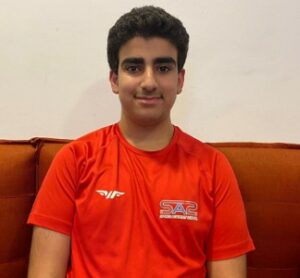 Charbel
Charbel
Charbel’s mother is a public servant and his father is in the army. As public sector employees, both of them are paid no more than $60 per month.
Charbel suffers from a speech disorder, which makes him self-conscious and shy around others.
Charbel also has a fourteen-year-old sister who needs educational support.
Israel, Lebanon on Edge After Rockets Fired
Rockets were fired on April 6 from southern Lebanon into Israel, and then from Israel across the border into southern Lebanon as clashes around Jerusalem’s holiest religious sites between Muslims and Jews escalated tensions in the region.
It is still not entirely clear who fired the rockets from Lebanon, which were followed by an Israeli response on April 7.
The government of Lebanon has begun an investigation, which will be carried out by the Lebanese Army and UNIFIL — the United Nations peacekeeping mission based in southern Lebanon.
Lebanon’s Prime Minister, Najib Mikati (who is a Sunni Muslim), condemned the use of Lebanese territory to launch attacks on Israel. In a statement, he affirmed that “Lebanon absolutely rejects any military escalation emanating from its land, and the use of Lebanese territory to carry out operations that may destabilize the existing stability.”
This article has more information on the firing of the rockets.
“Stability” may be a bit of a generous description of the current relationship between Israel, Lebanon, and the various Palestinian groups that operate in Gaza, the West Bank, and (seemingly) in south Lebanon. However, it is true that the October 2022 agreement on the maritime border between Lebanon and Israel seemed to mark a certain understanding, if not rapprochement, between the two countries that may now be in jeopardy once again.
At the time, the agreement seemed to represent a road map to peace and prosperity.
Lebanon’s president at the time, Michel Aoun, said that the deal would prevent war with Israel, while Israel’s then-Prime Minister Yair Lapid stated, “This is an historic achievement that will strengthen Israel’s security, inject billions into Israel’s economy, and ensure the stability of our northern border.” Hezbollah leader Hassan Nasrallah declared the agreement “a victory for the state of Lebanon.”
Aoun’s presidential term came to an end shortly thereafter, and months have now passed without the Lebanese Parliament choosing his successor. Lapid left office in December 2022, succeeded by Benjamin Netanyahu, who has spoken critically of the agreement but is unlikely to officially withdraw from it.
In the midst of the current uncertainty, one thing is clear — an escalated conflict would be to the great detriment of both Lebanon and Israel, to say nothing of the wider region. Thankfully, after the exchange of rocket fire, the situation seems to have calmed down and no further launches have been reported.
At Easter, Patriarch Rai Denounces “Illegal Weapons”
On April 8, Patriarch Rai commented on the rocket fire in his annual Easter message.
“Illegal weapons are dragging Lebanon and its people to receiving the blows of wars that they have not decided or wanted, as happened yesterday [Thursday, April 6 and early on Friday, April 7] on the southern border, despite the (U.N.) Security Council resolutions, most importantly Resolution 1701,” the Patriarch stated. “Until when will Lebanon’s land be violable to every armed person and until when will Lebanon and its people bear the repercussions of the foreign policies that are suffocating them day after day?”
The Patriarch also spoke out against the continued non-resolution of the refugee crisis in Lebanon, citing “the presence of 2.3 million displaced Syrians who are exhausting the state’s capabilities; disrupting social security; competing with the Lebanese over income; and going to Syria and returning through legal and illegal border crossings and in a continuous and visible manner.”
“The international community is protecting them at Lebanon’s expense for manifest and hidden political reasons… It is an urgent duty for MPs and officials to work with the international community to return them to their country and assist them there,” Rai said.
In further comments made on April 10, Easter Monday, the Patriarch spoke of hope for the future. Speaking in front of the French Ambassador to Lebanon, Anne Grillo, who attended the homily in Bkerkè, the Patriarch offered prayers for France and Lebanon
“We pray for [France] so that it remains the leading figure in any struggle for freedom, the rights of individuals and people throughout the world… Let us also pray for Lebanon, and ask, by the grace of God, that our country may rise as always from its ashes, and regain its rightful place in the region and in the world,” Rai said, adding, “We are sons and daughters of the Resurrection, the Christian hope, [that] Christ has risen to make all things new.”
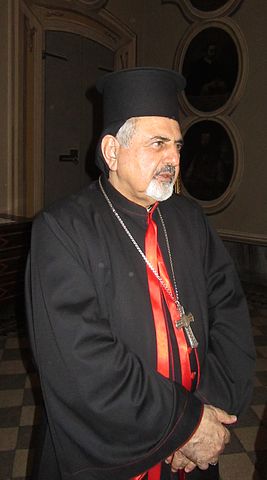
Ignace Joseph III Younan By Rei Momo – Own work, Public Domain, (link)
The Patriarch of the Syriac Catholic Church, Ignace Joseph III Younan, who also has his seat in Beirut, also spoke on Lebanon’s future in his Easter message on April 10, with an especially pointed criticism of corrupt government officials who have stood in the way of much-needed reforms.
“These corrupt people persist in obstructing the work of the political, constitutional and administrative institutions, and destroy the hopes of the Lebanese youth to remain in their homeland and build their future in it,” Patriarch Younan said.
He continued: “We deplore the willful failure of officials in general, and parliamentarians in particular, who have turned a blind eye to what is dictated to them by sense, conscience and national dignity. The Patriarch urged government officials to “stop their wrangling and maneuvers,” “immediately elect a president” and “form a national government that implements the necessary reforms,” so that Lebanon “can return to the international map, and to its previous era of development and prosperity.”
Please consider becoming a “Friend of Lebanon,” and help us to bring “short-term help” and “long-term hope” to the land where Jesus Christ walked and performed miracles.
As a “Friend of Lebanon,” you will be able to participate in our Zoom calls with the people we are working with in Rome, Beirut, and throughout Lebanon to support Christians in their ancient homeland.
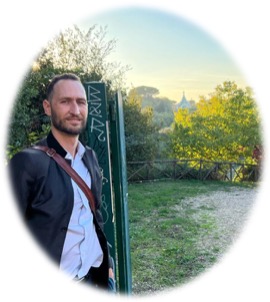 Please consider joining us.
Please consider joining us.
Christopher Hart-Moynihan
Director of Programs
Urbi et Orbi Communications
Enjoy a complimentary digital edition of Inside the Vatican Magazine by clicking here.
You can view all of our previous Lebanon Reports by clicking the button below. Please share with your friends and loved ones.

